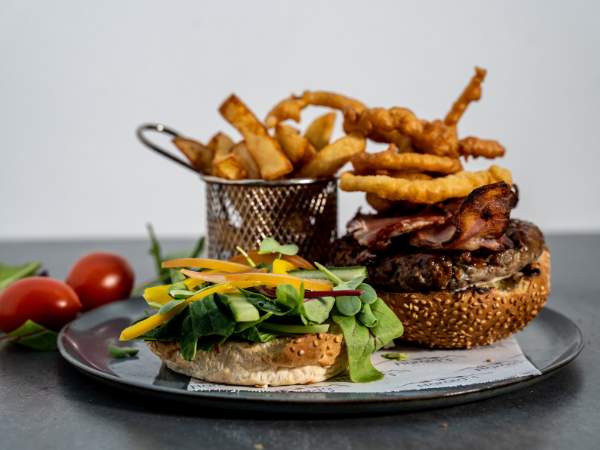News
Taste tomorrow: a forecast for the South African hospitality industry
Monday, May 6th, 2024
As 2024 promises to be the year in which COVID finally becomes something of the past, we rush to keep up with the pace of change and human evolution.
Challenging perspectives
For South Africa’s restaurant industry, there’s no slowing down. Cape Town is starting to reach capacity, with restaurants opening and closing as rapidly as ever unless ideally located. Johannesburg has infiltrated the Mother City with TANG and Marble’s openings, bringing new perspectives and concepts to challenge the Cape’s reigning wine-farm experience with minimalistic decor and a scattering of artwork.
Shifting expectations
Sitting in a space that fully encompasses a thoughtfully curated 360° concept is what diners are after today – something more experiential that includes theatre, novelty and entertainment. As consumers drive the need for next-level pop-ups and collaborations, who is taking South Africa further afield or creating exceptional experiences in the country?
The optics of sustainability
With the market shifting from product- and consumer-centric to lifestyle-centric and hyper-local, it’s becoming increasingly important to brand and position an establishment differently. In a competitive economic climate, not only does a chef need to consider which supplier to procure ingredients from at a relative cost, they should also be interested in (and motivate for) the use of ingredients that are best for our bodies.
Peeling back the layers
Fine dining has recently become overly processed with the use of saturated fats as the majority of kitchens use refined seed oils for frying. As consumers become more health-conscious thanks to documentaries such as Netflix’s Live to 100: Secrets of the Blue Zones, chefs are challenged to peel back the layers to bring food back to its purest form.The use of non-irradiated spices and avocado oil, for example, in place of cheaper alternatives poses a new challenge in many kitchens.
Quality and provenance
Becoming consciously aware of purchasing power and the exchange of money for good-quality ingredients is paramount – a decision that ultimately lies with the head chef and/or owners. Sustainable sourcing policies when using pork, eggs, beef, chicken, palm oil, coffee and chocolate should be practised. It’s becoming more important to tap into the history and application of an ingredient and its effect on our health – like, for example, realising the benefits of cacao as a functional food.

Image: Jan Ras, styling: Abigail Donnelly
What we leave behind
Waste management and the use of sustainable cleaning products and packaging add to the motion towards food transparency. Imagine how much plastic wrap is used globally across the hospitality industry in a day, let alone the amount of polystyrene that is still in circulation… Recent menu innovation includes calling out carbon emissions per meal or spotlighting zero-waste dishes, positioning them as USPs.
Think smart
The future of fresh produce and the environmental impact of food lie in technology. Smart farms are becoming increasingly popular, with an entire wall feature recently spotted at Boga Superfoods at City Walk, Dubai.
Lettuce is harvested à la minute per order. Fruits, vegetables and herbs can be grown relatively easily using vertical hydroponic farming – or a seasonal garden can be managed on-site, as many farm restaurants are already doing.
The rise of personalisation
As diner personalisation and customisation persist, chefs are encouraged to incorporate more plants in their menus. Instead of rolling eyes at vegans or flexitarians, the challenge should be accepted by experimenting and playing in the kitchen more, as Kirk Haworth of Plates London does.
Flavour accessibility
Seasonal produce provides infinite iterations and opportunities to explore flavour boosters and unique pairings that not only connect South Africa with what is trending but with a host of undiscovered ingredients and regions – such as Oaxaca – that rarely feature on our predominantly Asian-influenced menus. We should be pushing accessibility to global ingredients through suppliers, and develop an increased appetite for exploring flavour combinations that add depth to the plate and diners’ palates, while not overcomplicating dishes.
NoLo normative
The West relies heavily on alcohol sales against their bottom line. With the distinction between hospitality and wellness merging, and with NoLo drinking on the continuous up, food businesses will need to relook their structure and operating margins to evolve with these changes.
Wellness starts at home
Looking after mind, body and soul is at the forefront of living a sustainable lifestyle – something
that most chefs struggle with. What if chefs meditated as a team each morning, ate more nourishing meals to supplement the gruelling days on their feet, and worked more realistic hours that supported a better sleep routine? Globally, head chefs are being encouraged to be the changemakers by putting these practices in place for their teams.
Emma-Claire Peter is a culinary innovator and consultant based in Johannesburg. Follow her on Instagram @emmaclairepeter.












